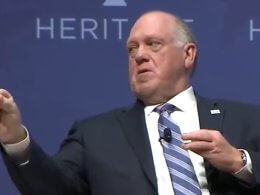Bipartisan skepticism of President Joe Biden’s efforts to revive the Iran nuclear deal is emerging on Capitol Hill as his administration races to put the finishing touches on a pact that was left in tatters by Donald Trump.
While Republicans have a airing their concerns more loudly, some top Democrats are beginning to openly express reservations about public reports outlining details of the new agreement, which would include lifting some sanctions on Tehran. Their doubts follow warnings from administration officials in a closed-door briefing Tuesday that Iran is closer than ever to producing enough material for a nuclear weapon.
“The negotiations aren’t complete, and there are major obstacles still remaining,” said Sen. Ben Cardin (D-Md.), a top Foreign Relations Committee member who opposed the 2015 U.S.-Iran nuclear agreement. “That doesn’t mean they won’t be resolved. But there are issues that are on the table.”
Sen. Chris Murphy (D-Conn.), who supports reviving the original pact, said after a classified briefing on Tuesday that U.S. intelligence about Iran’s so-called “breakout time” before developing a nuclear weapon is “chilling,” adding: “We have no reason to believe that there is a pathway, other than diplomacy, to extend the breakout time.”
Reentering the Iran nuclear deal was a little-recognized campaign promise of Biden’s, and it’s one he’s having trouble with on the Hill. His administration’s negotiations have mostly flown under the radar for the past year amid other foreign policy crises the president has faced, like the U.S. military’s withdrawal from Afghanistan and Russia’s war in Ukraine.
Republicans have near-uniformly opposed resurrecting the 2015 agreement, which they opposed at the time, and said signing a bad deal is worse than having no deal at all. They’ve also emphasized the need for Congress to have a say in the ultimate agreement.









